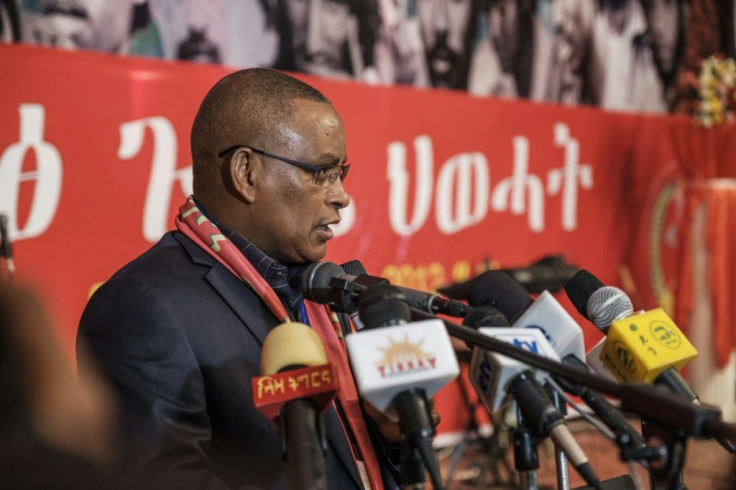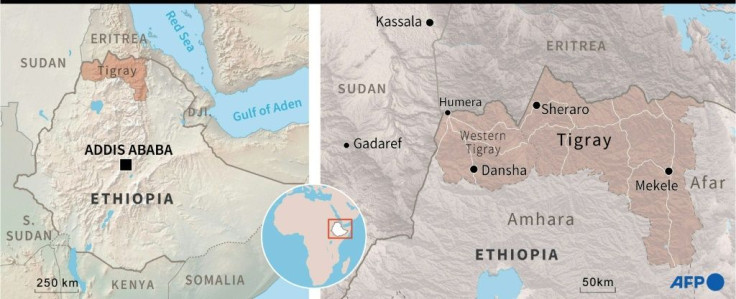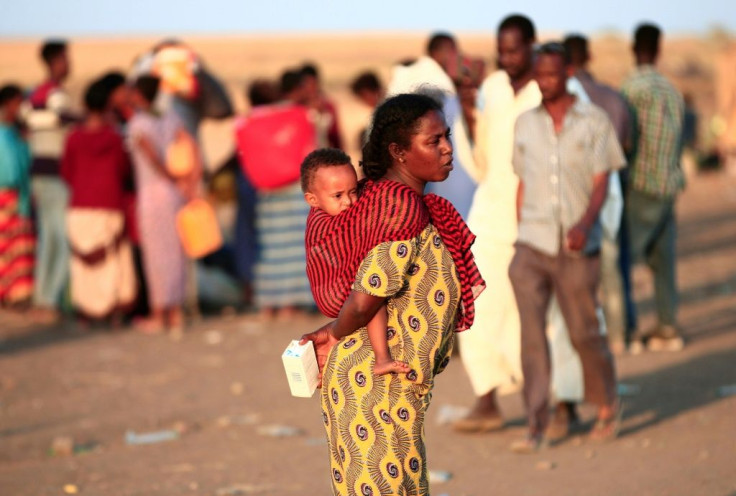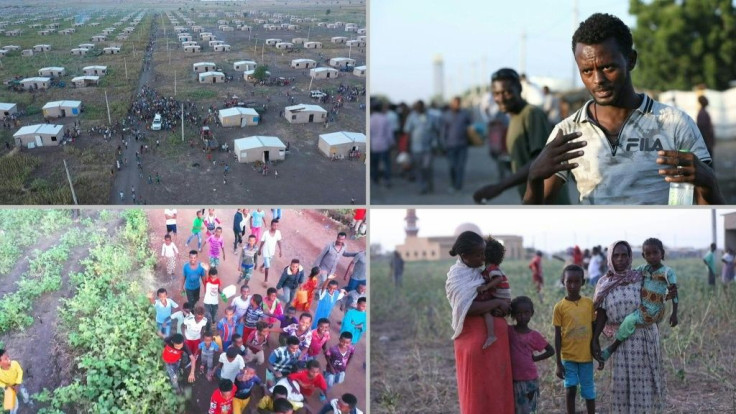Ethiopia's Tigray Region Claims Rocket Strikes On Eritrea Airport
The leader of the Tigray region of Ethiopia on Sunday claimed responsibility for rocket strikes targeting the airport in neighbouring Eritrea's capital, a move that ratcheted up fears of a wider conflict in the Horn of Africa region.
Diplomats told AFP Saturday night that multiple rockets had struck Asmara, landing near the airport, though communications restrictions in Tigray and Eritrea made the reports difficult to verify.
Ethiopian Prime Minister Abiy Ahmed announced November 4 he had ordered military operations in Tigray in a dramatic escalation of a long-running feud with the region's ruling party, the Tigray People's Liberation Front (TPLF).
"Ethiopian forces are also using the airport of Asmara," TPLF leader Debretsion Gebremichael told AFP on Sunday, saying this made the airport a "legitimate target" for the strikes.

He added that his forces had also been fighting "16 divisions" of Eritrean forces in recent days "on several fronts".
The TPLF has previously accused Abiy's government of enlisting military support from Eritrea, something Ethiopia denies.
It was not clear how many rockets were fired on Saturday night, where in Tigray they were fired from, whether they hit their targets or what damage they inflicted.
The TPLF is likely seeking an "internationalisation of the war" in order to draw outside intervention and stir up nationalist sentiment it believes would work in its favour, said Roland Marchal, an expert on the Horn of Africa at France's Sciences Po.
Implicating historical foe Eritrea could also "justify in advance the cost of the war for the civilian population" in Tigray, Marchal said.

In a statement Sunday, Abiy said military operations were "progressing well" and Ethiopia would "prevail" without outside help.
Abiy announced last week that federal forces had taken control of western Tigray, and on Sunday state media reported they had seized Alamata, a town in southern Tigray.
The claim could not be corroborated because of the communications blackout in Tigray.
The TPLF dominated Ethiopian politics for nearly three decades and fought a brutal 1998-2000 border war with Eritrea that left tens of thousands dead.
Abiy came to power in 2018 and won the Nobel Peace Prize the following year in large part for his effort to initiate a rapprochement with Eritrea.

Hundreds of people are reported to have been killed so far in the conflict in Africa's second most populous country, some in a gruesome massacre documented last week by Amnesty International.
More than 25,000 Ethiopians have fled into Sudan, Sudanese officials say.
Among them are Ethiopians returning to camps where they and their families sought refuge from devastating famine decades ago.

"I am filled with immeasurable sadness, because when I left, 20 years ago, I never thought that I would come back as a miserable refugee," said Gabriel, a 40-year-old farmer who arrived in eastern Sudan this week, asking to be identified only by his first name because he feared for his safety.
Back in Ethiopia, the UN is pushing for full humanitarian access to Tigray, where the TPLF's Debretsion says hundreds of thousands have been displaced internally by the fighting.
Ever since Abiy took power in 2018 on the back of anti-government protests, the TPLF has complained of being sidelined and scapegoated for Ethiopia's woes.
The feud grew more intense after Tigray went ahead with its own elections in September -- defying a nationwide ban on all polls imposed because of the coronavirus pandemic -- and tried to brand Abiy an illegitimate ruler.
The immediate catalyst for the military operations in Tigray, Abiy has said, was a TPLF attack on federal military camps.
The TPLF has denied the attack occurred.
Ethiopian lawmakers have backed a plan to install a caretaker administration in Tigray, and officials have issued arrest warrants for Debretsion and other TPLF leaders.
Abiy's government has said the TPLF needs to be disarmed before negotiations can begin, as world leaders have called for an immediate end to hostilities.
Tibor Nagy, the US State Department's top diplomat for Africa, tweeted Sunday that Washington "strongly condemns the TPLF's unjustifiable attacks against Eritrea... and its efforts to internationalize the conflict in Tigray."
Anonymous Ugandan government officials said Sunday that President Yoweri Museveni would begin brokering talks between the two sides on Monday.
Ethiopian Foreign Minister Demeke Mekonnen Hassen and representatives of the TPLF will meet with Museveni in the northern Uganda town of Gulu, the officials said.
They could not say whether Demeke and the TPLF officials would meet face to face.
An Ethiopian foreign ministry spokesman contacted by AFP said he was unaware of such a meeting, while Tigray's Debretsion did not respond to requests for comment.
Meanwhile, fears persist the conflict could draw in other regions of Ethiopia.
© Copyright AFP {{Year}}. All rights reserved.





















